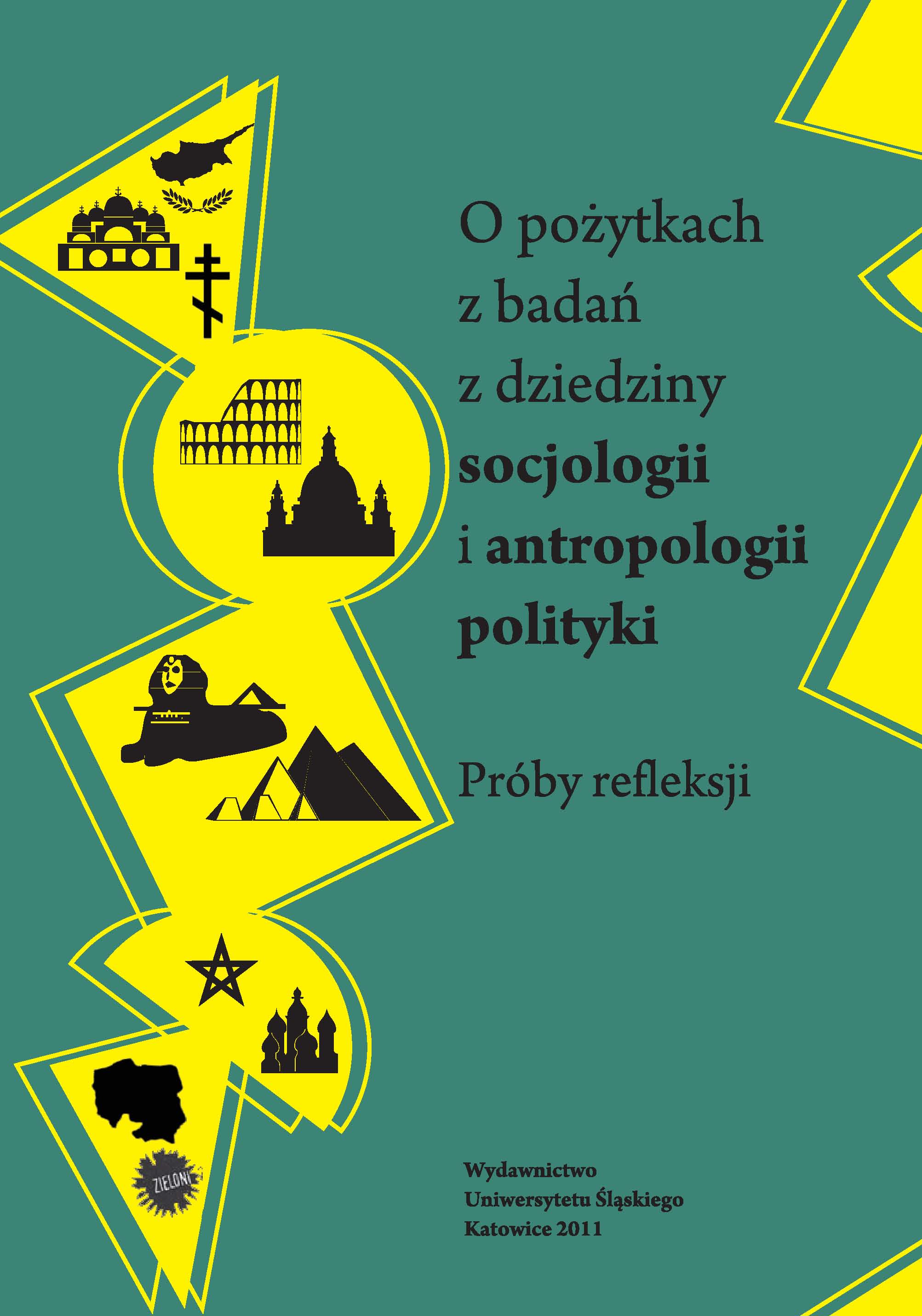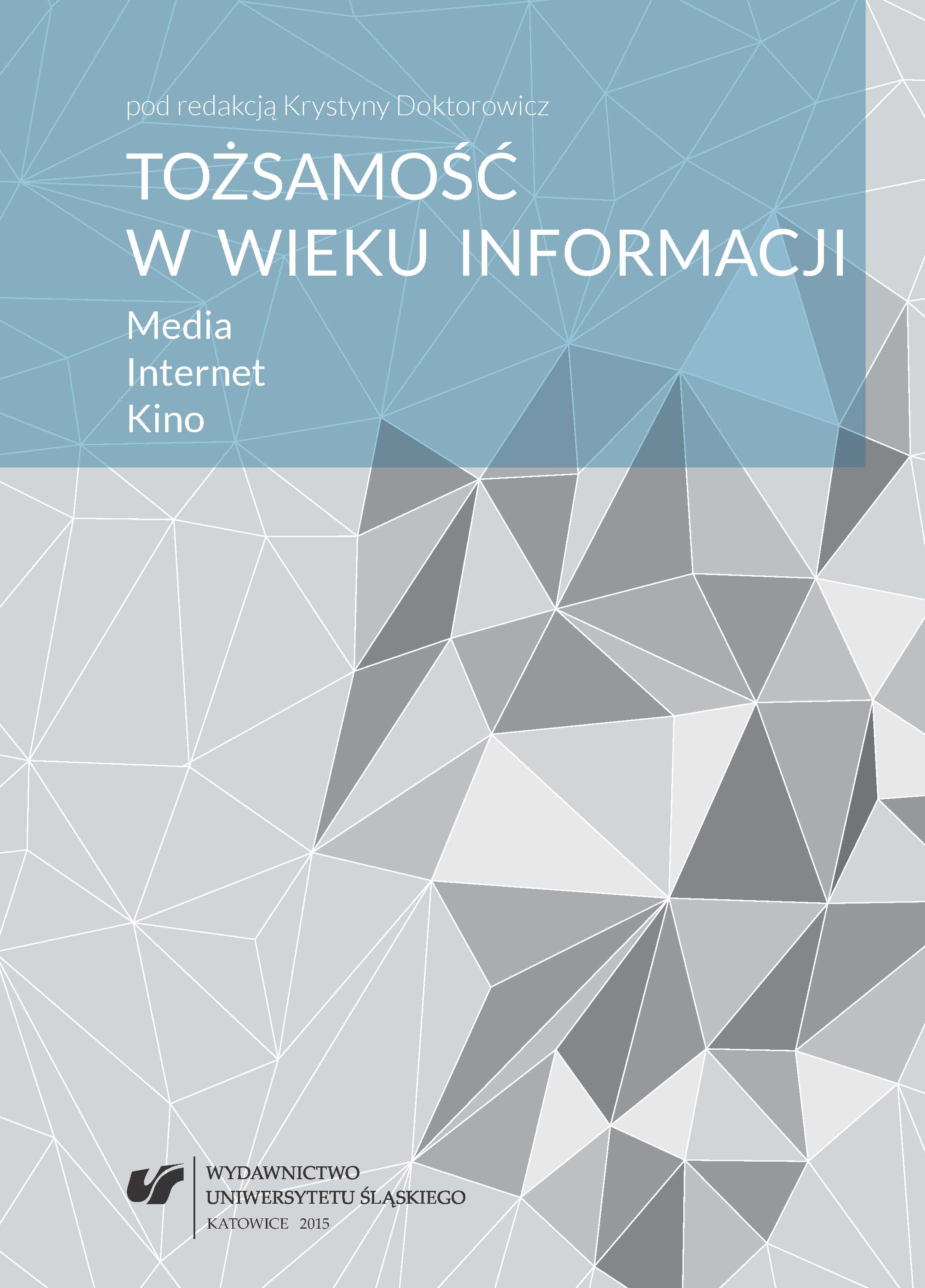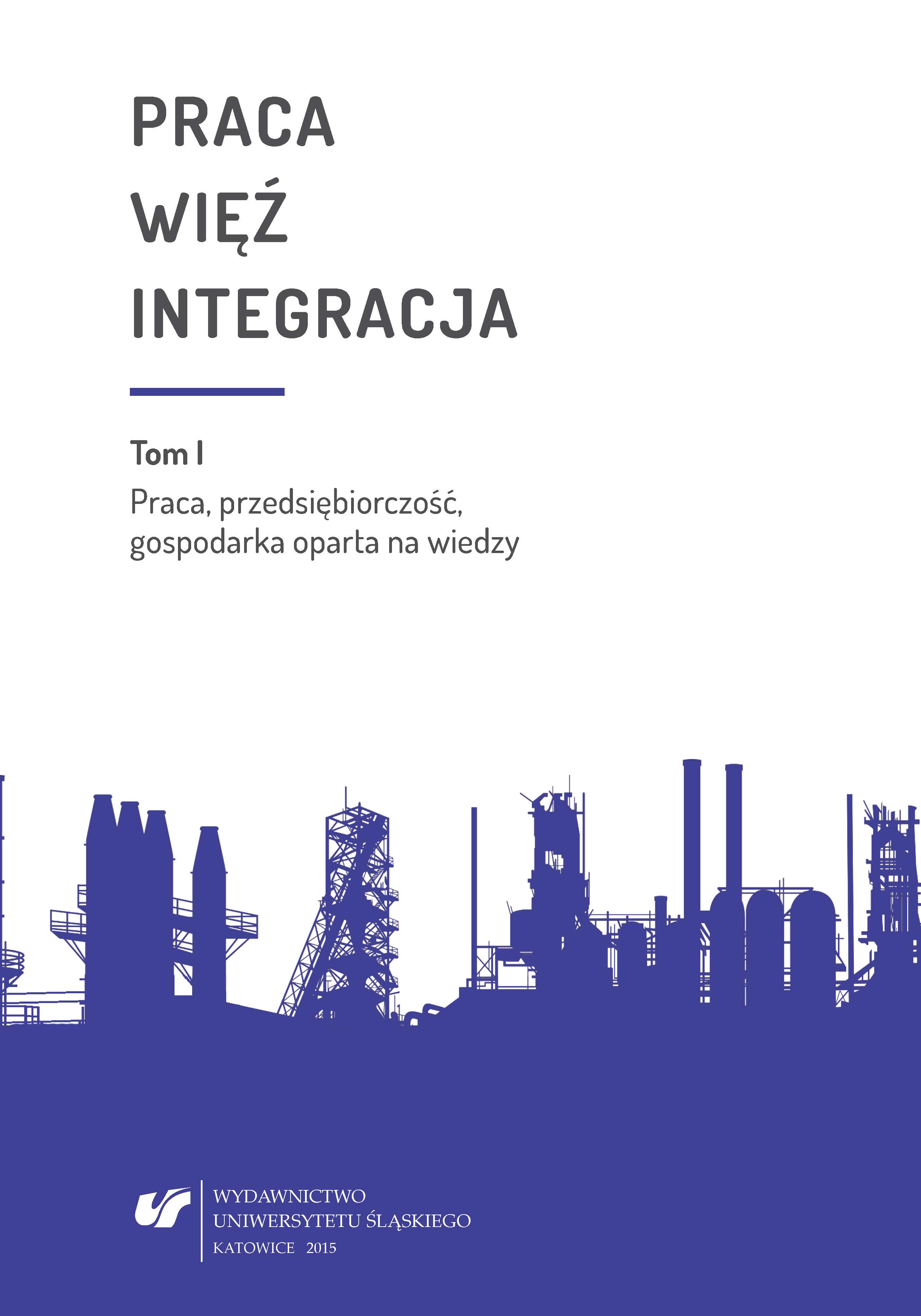






A dozen years ago, television was practically relied on creative activity. The regionalTV stations produced their own auditions, which was deep-rooted in regional tradition,whereas the nationwide broadcasters focused on popularizing national culture. Nowadays,TV stations buy up the prepared auditions to maximize the economic benefits. TVformats have dominated the schedules of public and commercial media. According to thepublic opinion, they have the destructive impact on forming and maintaining the culturalidentity. The presented article was aimed at answering two questions: how the adaptationsof worldwide TV formats affect national cultural identity and whether we can refer to theidentity in context of the auditions based on foreign licences.
More...
The object of study in this article is modern family and its image presented in massmedia communication.The first part of the work characterizes the image of the modern family and the changeswhich it has undergone in recent decades ― from the traditional patriarchal familymodel to the modern family in which there is no single dominant model and which ischaracterized by the adoption of its various forms. Changes were also made in the genderroles traditionally assigned to each generic family members because of their sex, whichhad an impact on the formation of new individual identities.In the next part of the article, there were presented figures on the condition of thefamily in Poland ― to characterize the real picture and verify the authenticity of the argumentset at the beginning of the article. The presented data clearly confirm a numberof changes which the family has went through in recent years, which led to the processof its “shrinking”. And in consequence to the departure from the traditional model of thepatriarchal family and the need to replace it with new family forms.The last part of the article , characterizes the media image of a family by the exampleof the most popular Polish television series in which still dominates the image of thepatriarchal and multigenerational family, that is professing traditional values.The results of the final analysis are to establish whether the image of the modern familypresented in the modern media is true or false. The results clearly confirm that the mediafamily picture is a fake and does not reflect its actual condition.
More...
The presented article tries to analyse processes of building and communicating identityin the time of media transformation. The examination is based on the case of regionalpromotion. The main objective of the paper is to answer the following questions:1. How does mass communication and social media affect the process of identity building?2. How is it possible to communicate an identity? Is a man, an organisation or a communityable to manage of the communication building process?The analysis is based on literature and the scrutiny of Silesia Voivodship image buildingprocess.
More...
The problem of identity is one of the most frequently raised in the communicationstudies, including media communication. Fairly common in the literature of the subject,it is considered that consistency is a prerequisite in communication activities, includingbuilding image consistency and that is achieved by properly constructed and communicatedidentity. This also applies to the identity of the places, including countries. Manystates have made a serious effort to build a cohesive identity, creating a visual identitysystems, building communication strategies, aligning the marketing and communication.This particular area can be considered the construction of identity in the area of tourism,where, for obvious economic reasons, proper communication to the visitors is of greatimportance. Poland also has made efforts in this regard, in its work on the national brand,developing strategic documents and in its communication activities. The question is, howis the Poland’s identity brand being built? The initial hypothesis, formulated on the basisof Internet presentations is that (Polish) identity is inconsistent.
More...

Keywords: human work; market; culture; ethics; morality
The article analyzes Władysław Jacher’s views and reflections on human labor, a sociologistat the University of Silesia in Katowice. The axiological‑normativedimensionof human labor plays an important role in his research. He began his scientific work byanalyzing St. Thomas Aquinas’ texts, deriving important components on human laborfrom them. Based on his research, human labor has been defined as: “conscious humaneffort undertaken in order to bring about goods, which one needs for life and personalgrowth hidden within and in the surrounding nature.”An axiological‑normativeconcept of man lies at the basis of Władysław Jacher’sdiscussion on human labor. Man, among all the creatures on earth, is a unique being,and apart of corporeality is also endowed with reason and free will. As a person, manlives simultaneously and inseparably in both the spiritual and bodily dimensions, andmust be regarded as a unique value in himself, deserving respect. A man cannot betreated as an object of possession or thing that can be freely manipulated.Work is not only the production of something, but it is an activity with someoneand for someone. Hence, sometimes a company is compared to a family. Managementand workers interact in a selfless way so as to reduce the burden of work and improvesocial relationships. The concepts of homo faber and homo economicus require yet to becomplemented with the notion of homo cooperativus. Work from the personal perspectiveis a duty and obligation of man, not only because the Creator wanted it to be so,but also to maintain and develop one’s humanity and to fulfill moral obligations, firsttowards one’s family, and then neighbors. In his discussion on human labor and itsaxiological‑normativedimension, Władysław Jacher’s stance is very close to that of theSocial Doctrine of the Catholic Church, namely its social aspects pertaining to humanlabor in its individual and social dimensions.
More...
Keywords: consumption; ethos of work; ethos of consumption; consumerism
The article is devoted to the issues of the transformation in the relations betweenwork and consumption. The main aim of the said paper is to describe the changes inthe relations between the ethos of work and the ethos of consumption in contemporarysociety. The author in question focuses on the answer to the question relating to inwhat area does the ethos of works become replaced by the ethos of consumption in thesystem of social values and what impact this has on human behaviour in contemporarysociety. The realization of the accepted aim was possible thanks to the application of themethod of critical analysis of the sources of national and foreign literature with refer‑ence to consumption. In this paper, an outline of the historical changes in the approachto work and consumption has been presented. The changes in the forms of work andtheir consequences with relation to consumption have been described. Apart from thisfact, the transformation of the perception of work in terms of values has been presented.As a result of the research carried out, the consequences of the impact of the ethos ofconsumption on human behaviour in the sphere of work and consumption has beenindicated.
More...
Keywords: work organization system; four brigade system; sociological report; science autonomy; legitimization; propaganda
This article focuses on issue of the sociological report prepared by Władysław Jach‑er’s research team. The report concerned implementation of the new work organizationsystem in industry in Poland in the seventies. The author concentrates on three level ofanalysis. Firstly, he takes into consideration the opinion of research head of team on thisproject. Secondly, he presents the assessment of coalminers, who worked in Katowicemines at the end of the seventies, of continuous working day — so called four brigadesystem. Thirdly, he includes the area of social pressures put on the science autonomyin totalitarian systems and liberal democracy.
More...
Keywords: emotional work; nurses; female trade union leaders; trade unions; employees’ problems; trade union activity
Human labour can be analysed in terms of fulfilling human material needs or anactivity aiming at social integration and communication. Social significance of work isclosely related to its ethical aspect expressed among others through compliance withworkers’ rights protected by trade unions. The purpose of the presented analyses is topresent the perception of employees’ and trade union problems by the female leaders ofthe All‑PolishUnion of Nurses and Midwives. The discussed considerations are based onqualitative research and focus on the problems of emotions related to trade union activity,negotiating and solving employees’ problems. Due to in‑depthinterviews conductedwith the female trade union leaders in this sector it was possible to identify indicateways of dealing with the encountered employees’ problems and indicate characteristicemotions accompanying negotiations. Thus they illustrate the significance of maintainingcontrol, ‘putting on a brave face’ and treating the trade union activity as the emotionalwork. All the analyses contribute to the discussion of issues connected with labour relationsand interpersonal workplace relationships.
More...
Keywords: cultural diversity; assimilation; integration; segregation; ethnic conflict
This article examines the specificity of co‑existenceof ethnic conflict in assimilation,integration and segregation process. More important process of modern world isthe increase in the number of migrations and the contemporary nomadism. There isa number of reasons why migrations occur, the primary ones including the enormousvariation in the level of civilization development that can be observed in various parts ofthe world. A tangible result of contemporary migrations is ethnic and cultural diversityof many social spaces. In this spaces assimilation, integration and segregation processestake place which most often result in harmonious coexistence of people from differentcultural systems, but sometimes lead to real or symbolic conflicts.
More...
Keywords: Public institutions; interest groups and flexians; organizational games; political chase of annuity; extraformal structures; disfunctional innovations
The article is analysing sources and restrictions of the functional integration processesin public instutitions. Author discussing about forms and the influence on organizationalorder of the internal and outside interest groups through classic and moderntheories of integration and the dysfunction in profesional ethics, innovations and formalizationof the quality they collective actions in managing of the public goods. Analysisof the network of influences lobbies, agents of corporate businesses (flexianie, politicalnomads, public officers) by theory of the bureaucratization, the social games and organizationalstrategies, disproportion of sets of the social values, and author’s modelof the dimensions of organizational order. He shows haw extraformal organizationalprocesses strengthening the dysfunctional postcomunistic clientelism and political chaseof annuity.
More...
Keywords: integration; competition; cooperation; metropolisation
The process of metropolitizing areas in Poland involves the formation of functionalsystems which can respond to the needs of large‑scalecommunities. Local and regionalstructures taking part in global competition must adapt themselves in institutional termsto the demands of the strongest players in the global economy in order to positionthemselves optimally within global (economic, political and social) cooperation networks.Reinforcement of this position in external systems requires the management of domesticcompetition, resulting in competitive cooperation. This article presents the resultsof research carried out in 2012 in selected cities in the Silesian voivodeship. The aimof the research was to analyze the competition and cooperation processes taking placebetween cities which were bringing about a grass‑roots‑upmetropolitisation of the UpperSilesian agglomeration.
More...
Keywords: social integration; migration; policy migration; transnationality
The main purpose of this paper is to show that in the context of the complexity anddynamics of contemporary migration processes the social integration concept is becomingmore and more obvious. First issue is that the concept of social inclusion, so far inPolish sociological discourse, did not live up to develop a comprehensive theory thatwould be appropriate for the current contemporary political and cultural trends. Thisproblem was scratched on the optics of important phenomenon of the transnationalism.A look through the prism of some transnational trends provides the unique perspectiveon the problem of integration policies towards migrants that are avoided in traditionalmigration theory. The third issue is taken in this study there are the dilemmas of integrationon the context of the situation of migration processes in Poland.
More...
Keywords: media; ethics; responsibility; media education
In this analysis I shall portray how development of technology affect the manner inwhich people communicate. Violent changes in this sphere do not harmonize with thelevel of adaptation of human to the situation. I shall decribe some difficulties arisingfrom human inablity of adaptation in the presence of latest media technologies. Oneof them is attempt of compensation of emotional defects through comming into roleof mass. Assuming that media strongly determine social life I shall analyse modernmedia through prism of their responsibility. One should conclude that latest media areprogram irresponsibility by reason on their structure and interests. One of thepossibilities of teaching society more concious use of irresposible media is media education,which uses in didactic process latest media, in the same time allowing for morereflective use of the tool.
More...
Keywords: cyberculture; Network relationship; social networks
Contemporary culture has many new features that on dramatically other way acton communities. The paradigm of network society allows us to see in a culture hernew character by showing her as relational networks. This new phenomenon is calledcyberculture and is made possible by the creation of more and wider networks betweencultural entities — creators and consumers.
More...